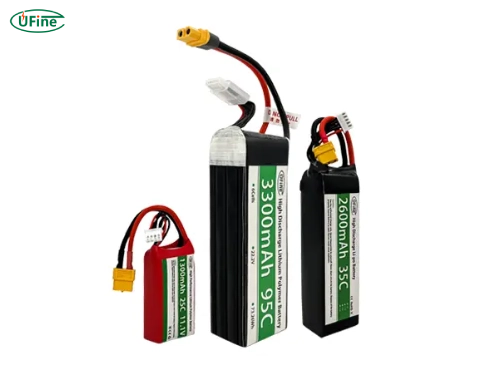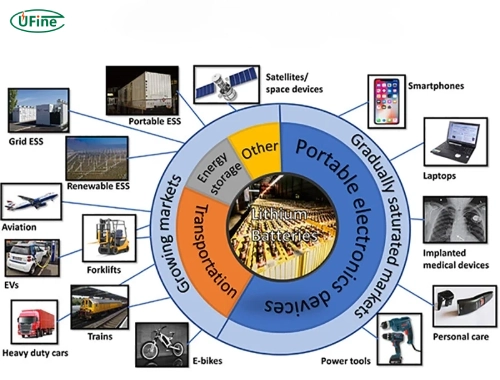A high-performance battery is a cutting-edge energy storage solution designed to meet the rigorous demands of modern technology and applications. As our reliance on portable electronics, electric vehicles, and renewable energy sources grows, understanding the intricacies of high-performance batteries becomes increasingly essential. This article will explore what defines a high-performance battery, its various types and applications, its benefits, and how specific ratings like cold cranking amps (CCA) and self-discharge rates impact performance.
Part 1. Understanding high performance batteries
High-performance batteries are distinguished by their ability to deliver superior power output, extended lifespan, and enhanced reliability compared to conventional battery types. These batteries are engineered with advanced materials and technologies that allow them to operate efficiently under demanding conditions.
Key features that set high-performance batteries apart include:
- Higher Energy Density: They can store more energy in a smaller, lighter package, making them ideal for applications where weight is a concern, such as electric vehicles.
- Rapid Charge Capabilities: High-performance batteries can often be charged much faster than traditional batteries, reducing downtime and increasing user convenience.
- Robust Construction: These batteries are built to withstand harsh environments, including extreme temperatures and physical shocks, which is crucial for applications in the automotive and aerospace industries.
Part 2. Types of high performance batteries
There are several types of high-performance batteries available on the market today, each tailored to specific applications:
- Lithium-ion Batteries: Lithium-ion batteries are among the most popular high-performance batteries due to their lightweight design and high energy density. They are widely used in smartphones, laptops, and electric vehicles. Their ability to maintain efficiency over many charge cycles makes them a preferred choice for consumers.
- Absorbent Glass Mat (AGM) Batteries: AGM batteries are lead-acid batteries that use fiberglass mats to absorb the electrolyte. This design makes them spill-proof and highly resistant to vibrations, making them ideal for motorcycles and luxury vehicles where reliability is paramount.
- Nickel-Metal Hydride (NiMH) Batteries: Commonly found in hybrid vehicles, NiMH batteries offer a good balance between cost and performance. They provide decent energy density and can effectively handle multiple charge cycles.
- Lead-Acid Batteries: While traditional lead-acid batteries are often viewed as outdated, modern variations like gel cells or AGM types provide improved performance metrics compared to standard flooded lead-acid batteries.
Part 3. Applications of high performance batteries
High-performance batteries find applications across various sectors due to their unique capabilities:
- Automotive Industry: In electric vehicles (EVs), high-performance batteries provide the necessary power for acceleration and range. They also play a critical role in starting systems for conventional vehicles.
- Aerospace: The aerospace sector relies on high-performance batteries for avionics systems where reliability and weight savings are critical. These batteries must perform flawlessly under extreme conditions.
- Renewable Energy Systems: High-performance batteries are integral in storing energy from solar panels or wind turbines. They ensure a consistent power supply even when generation fluctuates due to environmental conditions.
- Consumer Electronics: From smartphones to laptops, high-performance batteries enable longer usage times and faster charging capabilities, significantly enhancing user experience.
Part 4. Benefits of using high performance batteries
Investing in high-performance batteries offers numerous advantages that can justify their higher initial cost:
- Longevity: High-performance batteries typically have longer lifespans than standard options due to their advanced materials and construction methods. This longevity translates into lower replacement costs over time.
- Improved Reliability: These batteries can handle demanding applications without failure, providing peace of mind for users who rely on them for critical functions.
- Faster Charging Times: Many modern high-performance batteries support rapid charging technologies that significantly reduce downtime compared to traditional battery types.
- Lower Maintenance Needs: Advanced designs often mean less frequent maintenance than traditional battery types. For instance, AGM batteries require minimal upkeep since they do not spill or leak.
Part 5. How does cold cranking amps (CCA) rating impact battery performance in extreme temperatures?
Cold-cranking amps (CCA) is a crucial rating that measures a battery’s ability to start an engine in freezing temperatures. This rating indicates how much current a battery can deliver at 0°F (-18°C) for 30 seconds while maintaining at least 7.2 volts.
A battery’s chemical reactions slow down significantly in extreme temperatures and freezing weather. A battery with a higher CCA rating will perform better under these conditions because it can provide more power when needed, such as when the engine starts in frigid temperatures. Conversely, a battery with low CCA may struggle or fail to start an engine when temperatures drop.
Choosing a high-performance battery with an adequate CCA rating is essential for users living in colder climates or frequently operating their vehicles in low-temperature environments.
CCA Battery Meaning Explained: Everything You Need to Know
Part 6. How does the self-discharge rate of high-performance batteries compare to standard batteries?
The self-discharge rate refers to how quickly a battery loses its charge when unused. High-performance batteries typically have a lower self-discharge rate compared to standard batteries.
For instance:
- Lithium-ion Batteries: These have a meager self-discharge rate of about 2% per month, allowing them to retain charge over extended periods without use.
- Lead-Acid Batteries: In contrast, standard lead-acid batteries can lose up to 5% or more of their charge monthly if not appropriately maintained.
This lower self-discharge rate means high-performance batteries are more reliable for applications that may sit idle before being used again—such as backup power systems or seasonal vehicles like boats or RVs.
Part 7. Choosing the right high performance battery
Selecting the appropriate high-performance battery depends on your specific needs:
- Application Requirements: Consider what you need the battery for—whether it’s for starting an engine or powering electronic devices.
- Compatibility: Ensure that the battery fits your vehicle or device specifications.
- Budget Considerations: High-performance batteries are more expensive upfront, but their longevity can lead to cost savings over time.
Part 8. Common misconceptions about high performance batteries
There are several myths surrounding high-performance batteries that can mislead consumers:
Myth 1: All expensive batteries are high-performance.
- Fact: Price does not always equate to performance; it’s essential to check specifications.
Myth 2: High performance means more power output.
- Fact: High performance refers more to durability and reliability than sheer power output alone.
Part 9. FAQs
-
What is the lifespan of a high-performance battery?
High-performance batteries generally last 5 to 10 years, depending on usage patterns and maintenance practices. -
Are high-performance batteries worth the investment?
Yes, they often provide better longevity, reliability, and efficiency than standard options, making them worthwhile investments for many applications. -
Can I use a high-performance battery in any vehicle?
While many vehicles can accommodate high-performance batteries, ensuring compatibility with your specific model’s requirements is crucial. -
Do high-performance batteries require special chargers?
Some may require specific chargers designed for their chemistry (like Lithium-ion), while others can use standard chargers; always check manufacturer recommendations. -
How do I maintain my high-performance battery?
Regular inspections for corrosion, ensuring proper connections, and following charging guidelines will help maintain your battery’s health over time.
Related Tags:
More Articles

How to Choose the Best Jigsaw Tool Battery for Long-Lasting Power
Discover the top jigsaw tool batteries for power & runtime. Compare Li-ion vs. NiCd, top brands, and tips to extend battery life. Read now
The Logistics of Bulk Battery Orders: Shipping, Storage, and Hazmat Compliance
Learn how to safely manage bulk battery orders with tips on shipping, storage, and hazmat compliance for smarter, safer logistics.
Microcurrent Facial Device Battery Guide & Tips
Learn all about microcurrent facial device batteries, from types to lifespan, and how to choose a reliable supplier for long-lasting, safe skincare performance.
Power Pack Battery vs. Power Bank: What’s the Difference?
Power pack vs power bank: Learn the key differences, pros, and best uses to choose the right portable power source for your lifestyle.
What Is a Power Pack Battery and How Does It Work?
A power pack battery stores energy for off-grid use, emergencies, or travel. Learn how it works and how to choose the right one for your needs.





